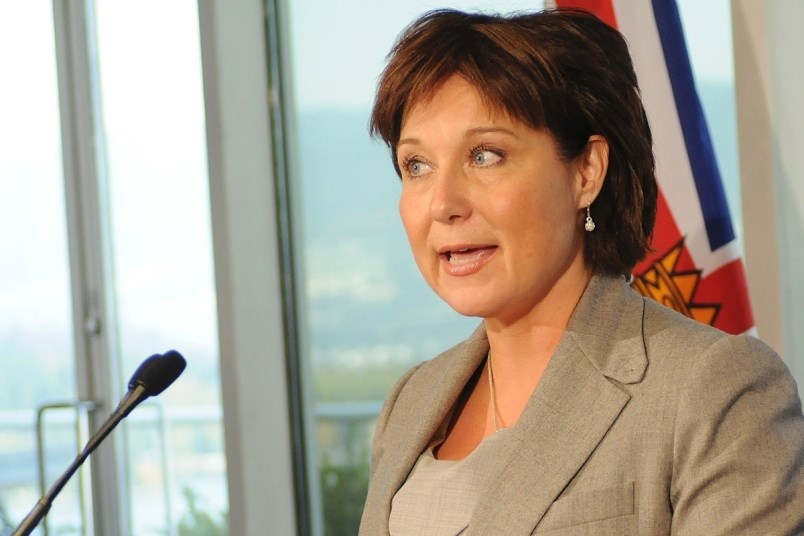NDP housing critic David Eby questions whether Premier Christy Clark will be able to deliver a $500-million investment into affordable rental housing, which she announced Monday.
Clark, joined by Housing Minister Rich Coleman at a press conference outside the George Derby Centre in Burnaby, said that 2,900 rental units will be created in partnership with non-profit societies, local governments, government agencies, community organizations and the public sector,
The $500 million is in addition to the $355 million set aside in the last budget for affordable housing.
“Now is the time [to invest the money] as housing gets more and more expensive, as the dream of home ownership or even being able to rent a home finds its way out of the reach of so many people,” she said. “This is the time to be able to make these investments so that we can support putting British Columbians first. Not just here in Burnaby and not just here in Vancouver, but in communities all across the province.”
Projects will be aimed at supporting seniors, students, single parents and people with low or moderate incomes, and will be identified and approved by March 2017. They will be completed over the next 24 to 36 months.
“I know that families across the province are going to benefit because you can’t live the kind of life that you hope for in this country, and you can’t raise your children in a way that you’d always dreamed of, if you don’t have a decent roof over your head, and our government is really committed to making that happen,” Clark said.
Funding will come from the 15 per cent foreign buyers tax and a larger than expected budget surplus, thanks in part to $2.2 billion in revenue generated by the land transfer tax.
However, news emerged this week that a class action suit has been filed to challenge the foreign buyers tax.
Eby said he’s “skeptical” about Clark’s ability to fulfill the housing promise and raised concerns about how the legal action will affect the financing of it.
“I’m skeptical about her ability to deliver for a couple of reasons. One is the proceeds that she’s spending are coming from a foreign buyers tax, which is being challenged in a class action and is very likely to be overturned. So will she still spend the money if the court orders her to pay it all back?” he said. “And the second reason I’m skeptical about her ability to deliver is she’s made all kinds of promises about hundreds of millions of dollars in housing in the past, but when you try to figure out where the money went, it disappears into rent supplements or emergency shelters or buying existing rental housing and the net effect on the housing market is functionally zero.”
He maintains the government should have been investing in housing for years so thousands of residents didn’t wind up on B.C. Housing's waitlist or in tent cities in some municipalities.
Eby said the government needs to fix the foreign buyers tax, which he called poorly conceived and designed to avoid bad headlines, to make sure it doesn’t have to pay the money back and it also needs to make a long-term commitment to a multi-year housing plan with targets for numbers of units.
“Because this ad hoc political approach to housing hasn’t worked,” he said.
Eby wants the government to adopt the Sauder School of Business proposal to tax people who don’t live, work and pay taxes in British Columbia with an extra property tax, which would be collected every year “and would provide sustainable and ongoing funding for housing and would also capture all the money that’s already in the housing market and would avoid the constitutional problem that their tax has.”
During the press conference, Clark said the almost 3,000 units of housing won’t solve the affordability problem, but it’s one of several measures, including with the luxury home tax, new regulations for the real estate industry, the foreign buyers tax and investment into transit, the government has adopted to address it.
“You’ll see more, but this is for us one of those other necessary pieces of the puzzle,” she said.
Eby, meanwhile, pointed to the timing of the latest announcement.
“More than a decade of not caring about housing and all of a sudden just before the election the premier has suddenly figured out that housing is an important issue that needs to be dealt with,” he said.
@naoibh



